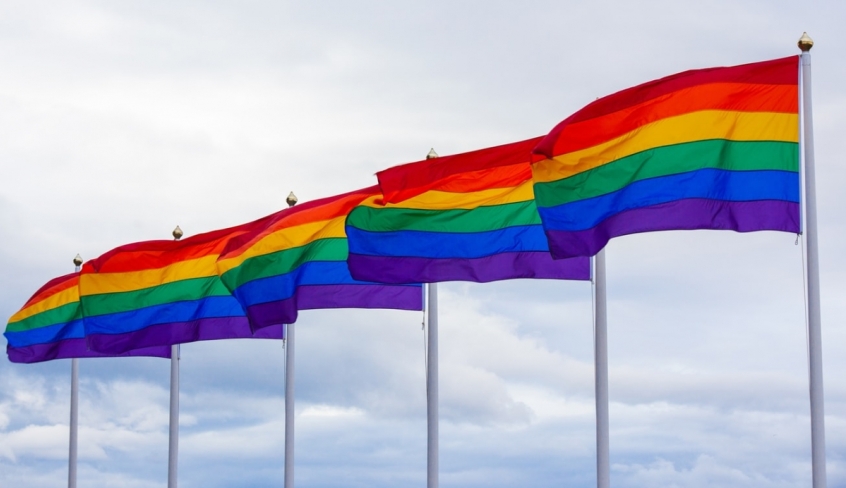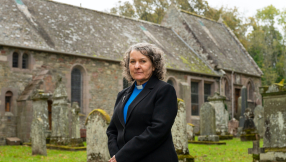
2,000 church leaders from across the UK have signed a letter to the government explaining why they cannot support its plans to ban conversion therapy.
One of those church leaders is Rev Graham Nicholls, director of the Affinity network.
He speaks to Christian Today about the implications of the ban and why he and so many other Christians are concerned.
CT: You've written a letter to the government outlining your concerns. Do you think it will listen?
Graham: It's hard to tell. I think the government naively believes that what it's doing is a completely reasonable and uncontroversial thing, that it's just banning practices that are brutal, coercive, cruel or harmful, and so this is something that all reasonable people would agree with.
What I don't think they realise is that many churches, particularly Bible-believing churches, would fall foul of the law as it is currently being proposed - whether that's by praying for people, or preaching or even being Christian parents. All of these things might fall on the wrong side of the proposed law.
If and when the government realises how this could potentially impact on the ordinary work and lives of Christian leaders and Christian parents throughout the country, it may well see sense and either give up on the law altogether or bring it in in a way that preserves normal Christian practices.
CT: The government has just extended a public consultation on its proposals. Would you encourage Christians to use this route to air their concerns?
Graham: I've personally submitted a response, and also submitted responses on behalf of the organisations I'm involved in. I would encourage all Christians and Christian organisations to respond to the consultation as part of the democratic process.
CT: One of the concerns among Christians is that conversion therapy in the consultation document is too loosely defined. Do you share that concern?
Graham: That's one of our two principal objections. As a term, 'conversion therapy' is not really defined and so it makes no sense to legislate something where there's no agreement as to what it actually is.
But even if we assumed for a moment that it were to be defined in line with what some of its supporters are campaigning for, it would have such a broad definition as to be impractical, and would include the ordinary work of pastors, youth workers, Christian counsellors and Christian parents.
So we have two concerns: one is that there isn't currently a clear definition, and the second is that the definition the government eventually settles on may end up being so broad that it is not useful and also potentially causes all sorts of legal issues for normal Christians.
CT: What do you make of the government's assurances on things like prayer not being included in the ban? Do you think the government can be trusted with its promises?
Graham: I don't know if it's a matter of trusting or not trusting, because these kinds of promises have their own interpretation. I am reassured and encouraged by the assurances given in the preamble to the consultation but it's a political process so who knows what will happen by the end of it in terms of the actual law.
There are voices speaking up in favour specifically of banning prayer and any encouragement to behave in different ways, which is quite unreasonable from any human rights perspective.
And it builds on this illogical assumption that there is a fixed identity, whether that's sexual preference or gender identity, that is separate from your biological body. There are clearly people who are attracted to the same sex but the question is whether that's a separate identity that's immutable and couldn't possibly be questioned or channelled in another way.
It's presented as a simple issue - like the colour of one's skin, which cannot be changed. And yet in reality, it's not as simple as that.
CT: There are two aspects to the concerns of evangelicals: one is how it will affect churches but the other is parents. How do you think this might affect Christian parents?
Graham: Until we see the first draft of the law, it's hard to say for certain, but our concern is that if, for example, a conversation were to take place where a child questioned something about the path they should follow and a Christian parent tried to explain their identity in God, this may be construed as breaking the law.
I don't think it's sensationalist to say that this scenario is possible once you've defined a term of abuse in law. Because then it would be possible that such a conversation would be seen as wrong in the eyes of the law in the same way that physical or emotional abuse would be wrong in a parental setting. It's easy to imagine these things crossing over.
CT: If a ban does come into effect in such a way that these concerns are realised, do you intend to abide by the ban or is it a case of needing to put principles first?
Graham: It's not a simple question to answer and it's qualified by what the actual law will say, but if the law compelled us to do something which is against our Christian conscience we'd have to follow Christ rather than follow the law. So if for example, talking to people about what the Bible teaches on sexuality and gender became prohibited under such a ban, or we were prohibited from praying for people in the context of biblical teaching, then we would have to continue teaching and praying in the way that God calls us to.













